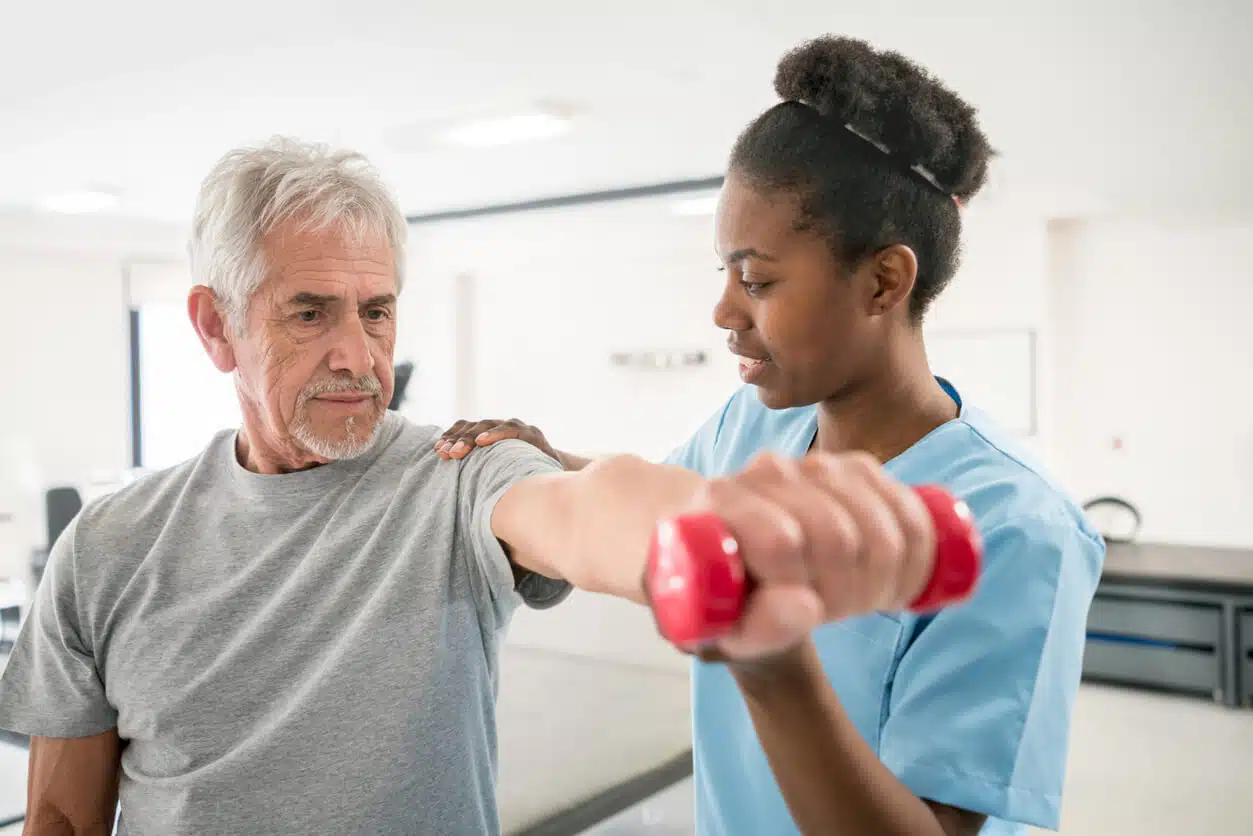
If you have been diagnosed with a torn rotator cuff, one of the first questions you might have is whether it can heal without surgery.
The rotator cuff is a group of tendons and muscles in your shoulder, and injuries to it are common — especially among athletes and those doing repetitive arm movements. But does every case require surgery?
Let us explore the possibilities for non-surgical treatment, what factors influence healing, and when surgery might become necessary.
What Is a Torn Rotator Cuff
The rotator cuff is responsible for stabilizing and moving your shoulder. It consists of four muscles and their associated tendons that connect the shoulder blade to the upper arm bone (humerus).
A rotator cuff tear happens when one or more of these tendons become torn, either partially or fully.
How Does a Tear Happen
A rotator cuff injury can be sudden (from an accident or heavy lifting) or develop over time due to wear and tear. Aging, repetitive overhead arm motions, or conditions like tendonitis can also contribute to tears. Symptoms often include:
- Persistent shoulder pain
- Weakness in the arm
- Difficulty lifting items or reaching overhead
- Crackling sensations during movement
The severity of these symptoms depends on whether the tear is partial or complete and how long it has been untreated.
Can a Torn Rotator Cuff Heal Without Surgery
It depends on several factors, including how severe the tear is and your overall health. Many partial tears and some smaller full tears can heal or improve without surgical intervention, especially if appropriate treatments are followed.
However, large or complete tears often require surgery for full recovery.
Here are some factors that affect non-surgical healing of the rotator cuff tear:
- Size and Type of Tear: Minor partial tears have a higher chance of healing without surgery compared to complete tears.
- Age: Younger patients generally heal faster as their tendons and tissues are more resilient.
- Lifestyle and Activity Level: Sedentary individuals may manage well without surgery, but active individuals or athletes may struggle with a reduced range of motion.
- Condition of the Tendons: Degeneration or poor blood supply to the tendons can hinder healing.
- Time Since Injury: Early intervention increases the likelihood of non-surgical treatment success.
Non-Surgical Treatment Options for a Torn Rotator Cuff
For many patients, surgery is not the first step. Physicians often recommend trying non-invasive approaches first to manage symptoms and encourage healing.
Rest and Modification of Activities
Allowing the shoulder to rest is crucial, especially in the early stages of healing. Avoid activities that aggravate the pain, such as lifting heavy items or repetitive overhead movements.
Physical Therapy
Physical therapy plays a significant role in strengthening the muscles around your shoulder to compensate for the tear. Common exercises focus on:
- Improving shoulder flexibility.
- Building strength in surrounding muscles.
- Restoring the shoulder’s range of motion.
Consistent physical therapy under a professional’s guidance can greatly improve function over time.
Medications
Over-the-counter pain relievers like ibuprofen (Advil) or acetaminophen (Tylenol) can manage pain and reduce inflammation. For severe pain, steroid injections may be recommended by your orthopedic doctor.
Hot and Cold Therapy
Ice packs are effective for reducing inflammation, while heat helps relax the muscles and improve circulation to the shoulder area.
Platelet-Rich Plasma (PRP) or Stem Cell Therapy
Emerging treatments like PRP involve injecting concentrated platelets into the affected area to boost the natural healing process.
When Is Surgery Necessary
Though many patients successfully manage symptoms without surgery, surgical intervention becomes necessary if:
- You have a large or complete tear.
- Non-surgical treatments fail after several months.
- You experience extreme weakness and loss of shoulder function.
- The tear involves a tendon that has entirely separated from the bone.
Typically, surgeons perform a minimally invasive procedure called arthroscopy to repair the torn rotator cuff tendon. Open surgeries might be recommended for larger tears that require more extensive repair.
Recovery after surgery often involves physical therapy and can take 4 to 6 months.
Torn Rotator Cuff Treatment in North Dakota
If you suspect a torn rotator cuff or are experiencing persistent shoulder pain, early diagnosis and treatment are crucial.
At The Bone & Joint Center, we specialize in providing comprehensive care for musculoskeletal injuries, including torn rotator cuff. Our experienced orthopedic specialists will guide you through your treatment options, whether you need physical therapy or surgical intervention.
For more information or to schedule a consultation with one of our providers, call our office today at (701) 946-7400/(866) 900-8650 or use our appointment request form. We look forward to serving you!

